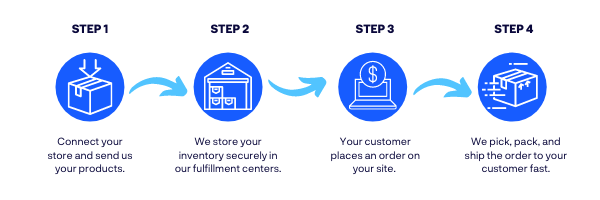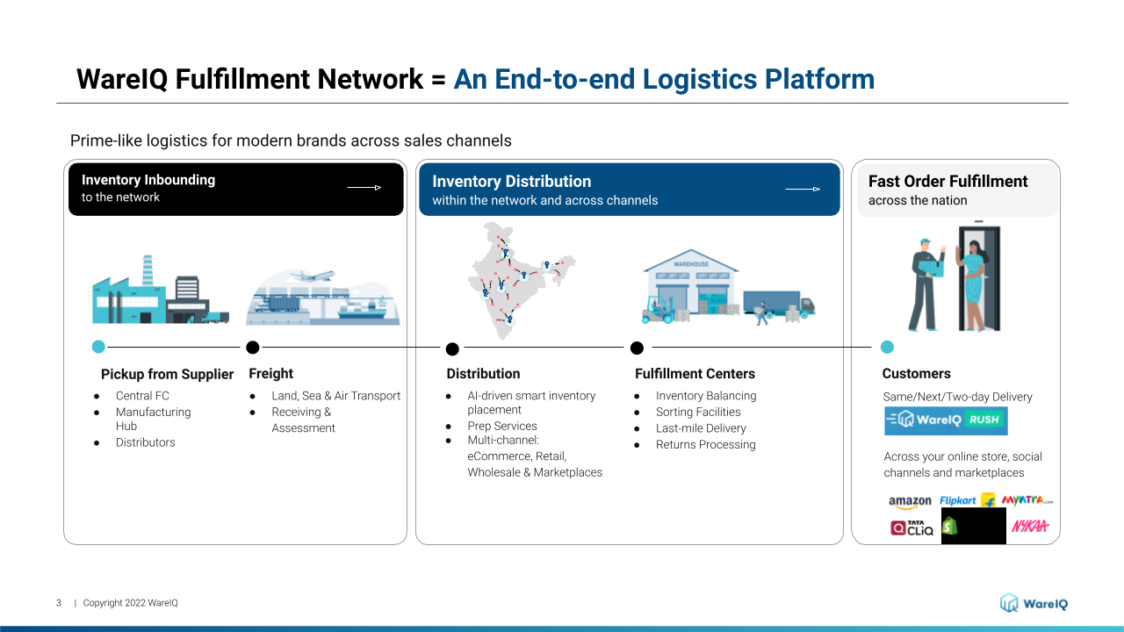The world of retail has been rapidly transformed by the rise of eCommerce. With the convenience of online shopping, more and more customers are turning to digital platforms to meet their purchasing needs. However, in this fast-paced and ever-evolving eCommerce landscape, one aspect that remains crucial for success is efficient logistics and fulfillment. In order to meet the increasingly high expectations of customers, an optimized delivery process is of utmost importance. This blog post will explore how eCommerce businesses can streamline their logistics and fulfillment operations to achieve lightning-fast delivery and, in turn, deliver delightful experiences to their customers.
The Need for Efficient eCommerce Logistics and Fulfillment
When it comes to eCommerce, customers expect nothing less than a seamless and speedy delivery experience. The influence of industry giants like Amazon has set the bar high, conditioning customers to anticipate prompt deliveries. Failing to meet these expectations can have significant consequences, including customer dissatisfaction, negative reviews, and lost sales opportunities. Inefficient logistics and fulfillment processes can lead to delayed deliveries, incorrect orders, and poor packaging, ultimately hindering customer satisfaction.
The Key Elements of Efficient eCommerce Logistics and Fulfillment
Strategically located warehouses play a vital role in reducing delivery times. Ensuring that fulfillment centers are strategically positioned allows for quicker access to key markets, enabling businesses to reach customers faster. Additionally, advanced inventory management systems help optimize stock levels, preventing stockouts and reducing the time it takes to pick and pack orders. By maintaining accurate inventory data and leveraging technology, eCommerce businesses can efficiently streamline their fulfillment processes.
Order Processing and Shipping
Automated order processing systems play a pivotal role in streamlining fulfillment operations. By managing orders in a centralized and automated manner, businesses can ensure accuracy and efficiency, reducing errors and minimizing delays. Furthermore, integrated shipping software that seamlessly connects with courier services allows for quick and easy shipping label generation and order tracking. Partnering with reliable and efficient courier services further enhances the delivery process, ultimately leading to faster order fulfillment.
Last-Mile Delivery Solutions
The last-mile delivery, the final step in the supply chain, often poses unique challenges. However, with the advancement of technology, innovative last-mile delivery options have emerged. Drone delivery, autonomous vehicles, and local fulfillment centers are revolutionizing the last-mile process by enhancing delivery speed and accuracy. These solutions, combined with same-day or next-day delivery options, not only meet but exceed customer expectations, resulting in increased customer satisfaction.
Technologies Revolutionizing eCommerce Logistics and Fulfillment
AI and ML algorithms are transforming the way eCommerce businesses manage their logistics and fulfillment operations. These technologies optimize routing and delivery schedules, ensuring efficient and timely deliveries. Additionally, AI and ML can predict demand patterns, allowing businesses to anticipate and stock products accordingly, reducing inventory holding costs while meeting customer demands efficiently.

Image courtesy of via Google Images
Internet of Things (IoT)
The Internet of Things (IoT) has made significant contributions to eCommerce logistics. Utilizing IoT sensors and devices, businesses can track inventory and monitor delivery conditions in real-time. This enables proactive measures to be taken in case of delays or mishandling, leading to efficient and reliable deliveries. Moreover, IoT technology has the potential to improve last-mile delivery by optimizing routing and reducing carbon footprints through intelligent delivery routes.
Blockchain Technology
Blockchain technology ensures transparency and security in supply chain management. By utilizing distributed ledger systems, businesses can trace products throughout the supply chain, ensuring authenticity and promoting trust. Smart contracts, enabled by blockchain, can automate payments and track shipments, simplifying the order fulfillment process while minimizing errors and delays.
Success Stories: Companies Leading the Way in Efficient eCommerce Logistics and Fulfillment
Several eCommerce businesses have successfully prioritized and revolutionized their logistics and fulfillment operations. Zappos, one of the pioneers in online shoe retail, focuses on exceptional customer service and swift delivery. Alibaba, the renowned Chinese eCommerce giant, has invested in an extensive logistics network, enabling fast and efficient deliveries even in rural areas. JD.com, another major player in the Chinese market, employs innovative technologies including drones and autonomous vehicles for prompt and reliable last-mile deliveries.
The Future of eCommerce Logistics and Fulfillment
The world of eCommerce logistics and fulfillment is constantly evolving. Emerging technologies, such as augmented reality, robotics, and advanced data analytics, hold immense potential to transform the industry further. However, as new challenges and opportunities arise, businesses must be prepared to adapt and leverage these technologies to stay ahead of the competition. By embracing innovation and continuously improving their logistics and fulfillment processes, eCommerce businesses can ensure lightning-fast deliveries and exceed customer expectations.

Image courtesy of via Google Images
Conclusion
Efficient eCommerce logistics and fulfillment are crucial for delivering delight to customers. Meeting and exceeding their high expectations requires streamlined processes and innovative technologies. By investing in strategic warehousing, automated order processing, and last-mile delivery solutions, businesses can ensure lightning-fast deliveries. The integration of technologies like AI, IoT, and blockchain further enhances efficiency and accuracy throughout the supply chain. As the eCommerce landscape continues to evolve, it is imperative for businesses to adapt and embrace emerging technologies to stay competitive and deliver exceptional experiences to their customers.



